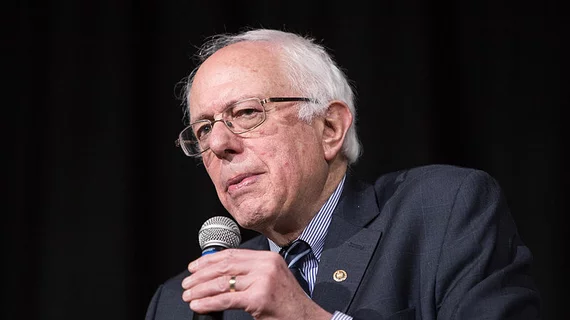Amazon’s $4B takeover of One Medical is already under fire
Within hours of Amazon announcing its intention to acquire healthcare provider One Medical for $3.9 billion in cash, lawmakers took aim at the retail giant to pursue blocking the deal.
The Deal
One Medical is a technology-forward healthcare company based in San Francisco that provides a combination of in-person, digital and virtual care services. The acquisition marks Amazon’s biggest move into the healthcare space to date, though the e-commerce conglomerate has made several serious actions over the past few years, including acquiring online pharmacy PillPack for $1 billion and launching Amazon Care. One Medical accepts most insurance carriers, as well as Medicare, meaning the deal gives Amazon a piece of the Medicare pie, as well.
Sen. Bernie Sanders (I-Vt.) was quick to criticize the deal, voicing his concerns that Amazon has too much power.
“The function of a rational health care system is to provide quality care to all in a cost-effective way, not make billionaires like Jeff Bezos even richer,” Sanders tweeted July 21. “At a time of growing concentration of ownership, the Justice Department must deny Amazon's acquisition of One Medical.”
Sanders has been a supporter of universal healthcare under a Medicare for All policy for many years. Some critics of Amazon’s planned acquisition of One Medical view the move as a threat to the potential passage of a universal healthcare law in the United States.
“This will be a blow to the fight for universal [healthcare],” tweeted journalist Aaron Rose. “Imagine all the money Amazon will pour into lobbying to stop Medicare for All now that they have a dog in the fight.”
In addition, Sen. Amy Klobucher (D-Minn.) called on the Federal Trade Commission (FTC) to block the deal. In a letter to the agency, she raised concerns that Amazon’s past actions are anticompetitive and that the e-commerce giant could use personal health data for competitive advantages.
“Amazon still continues to buy up more and more companies. In fact, it has bought 118 companies in the last 25 years. This proposed transaction raises questions about potential anticompetitive effects related to the pharmacy services business Amazon already owns and about preferencing vendors who offer other services through Amazon,” she wrote in the letter. “I also ask that the FTC consider the role of data, including as a potential barrier to entry, given that this proposed deal could result in the accumulation of highly sensitive personal health data in the hands of an already data-intensive company.”
Calls for the deal to be blocked come as the FTC has flexed more of its power to put healthcare deals on ice as of late. Last month, the FTC paused HCA Healthcare’s planned acquisition of Steward Health Care System for anti-competitive actions. In 2020, the agency moved to block a proposed merger between Jefferson Health and Einstein Healthcare Network, two Philadelphia-based health systems with a combined revenue of $5.9 billion, though the deal eventually was finalized. Additionally, the FTC attempted to interfere in Illumina’s massive $8 billion acquisition of Grail, and the deal, while completed, is still under fire from U.S. and U.K. regulators. It is possible the FTC could knock Amazon’s planned takeover, as well, amid louder calls to end hospital and health system monopolies.

